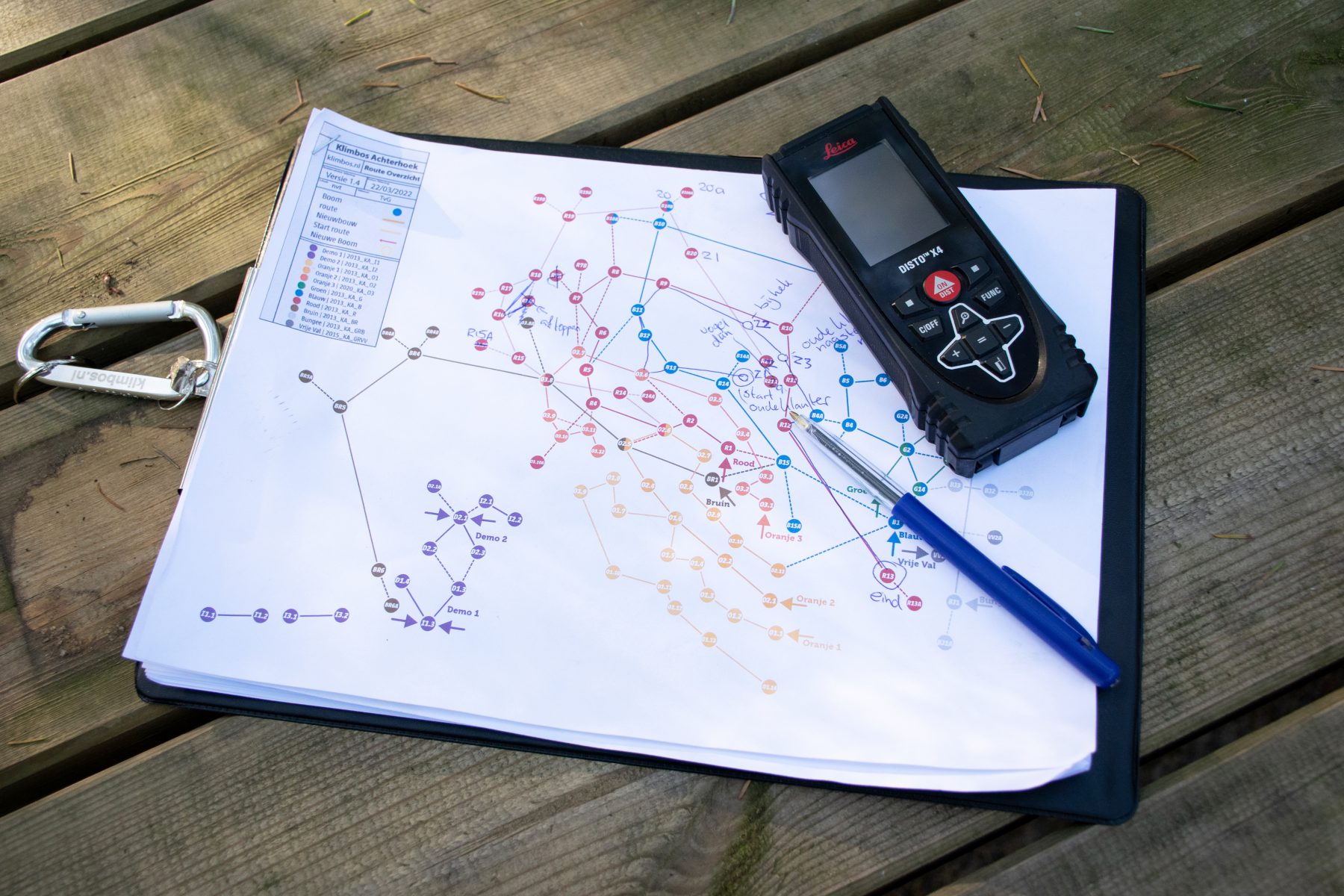15 February 2023
We have 5 climbing locations spread across the Netherlands. And each climbing forest has its own climbing routes. Of course, these have to be maintained and we also regularly build whole new routes. Like at Klimbos Achterhoek in Ruurlo this winter. It had been on this forest's wish list for a long time and now route black has been realised! Super cool of course, but who devises such a route, decides which parts will be used and how will everything be hung in the trees? We are going to take you through the whole process, from the initial idea to the final opening of the route.
This time part 1: Preparing a new route
To get straight to the point: a new route is not always possible. First of all, there has to be room in the forest, of course. In addition, we keep a close eye on whether the routes that are currently available match the demand from guests. Both in total number of routes, and the ratio of junior and regular routes. The idea for route Black in Klimbos Achterhoek arose two years ago, the colleagues were increasingly hearing from guests that they wanted more of a challenge. Route Red was fun, but more difficulty could be added. Adding an extra route also ensures a better flow in the other routes on busy days.
If it is then decided that there is room for and a need for a new route, the design process begins. Together with a Construction & Maintenance employee, the site manager makes a sketch of the route, which already shows exactly which trees can ideally be used, how long the route will be, where the platforms should be and which elements can be hung between the different trees. This plan takes into account the distance between the trees to create a nice gradient in the route, but the height and circumference of the trees are also important.

The elements that enter the plan are, on the one hand, chosen from existing elements in other routes or climbing forests. On the other hand, elements are completely rethought, making the route truly original and unique!
For route black in Klimbos Achterhoek, there has been a lot of creativity. For example, the Technasium of secondary school Het Schaersvoorde in Aalten was involved. Dirk Liebrand , location manager of Klimbos Achterhoek explains: "Every year, pupils do a number of assignments related to the Klimbos and for the new route too, they had great ideas, which actually ended up in the trees. The peers also had a lot of inspiration, which led to, among other things, the following elements in the black route: a 3-dimensional ladder and a 4-dimensional ladder. Route red also got the new element Stelten, for example. Really cool!"
The plan made with the route and elements must then be reviewed by a number of parties, both internal and external. These include the owner of the land, Prohold for tree inspection (all trees we use are pre-inspected) and our quality and safety manager.

And then comes the moment of deciding to go for it. Time to make all the platforms and elements. This is done in our workshop in Apeldoorn. Weeks and sometimes months of daily work on all wooden elements. All made of untreated Douglas fir. Everything is manufactured from loose boards and beams. Based on drawn designs with all dimensions, the wood is cut to size and neatly finished. This requires a lot of tools, which fortunately are available in the Klimbos Nederland workshop. And when platforms and/or elements are ready, they are loaded up to be taken to the site.

Photography: Marjolein Hameleers
Share this story
